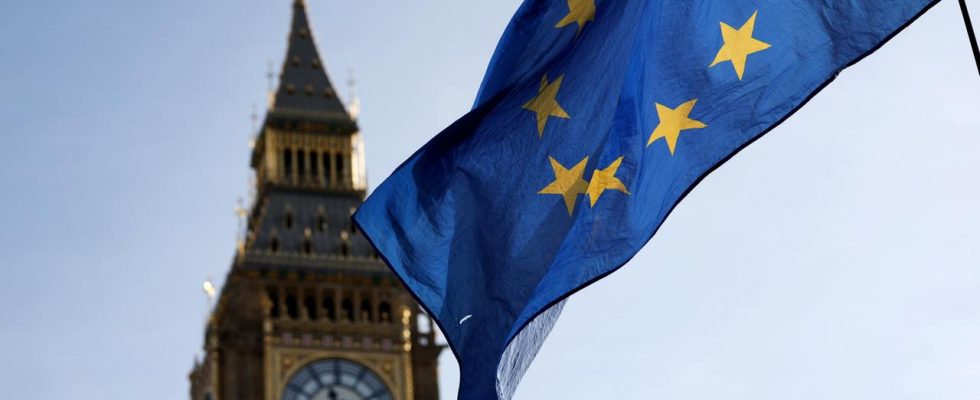analysis
Less growth, the promised trade agreements have still not been concluded, and there are many new controls: four years after leaving the EU, many Brits are struggling with Brexit.
At the time, Brexit supporters never tired of praising Britain’s guaranteed sovereignty outside the EU. Like the then Prime Minister Boris Johnson. “Take Back Control” was the slogan.
The idea was to replace the EU’s trade agreements around the world with bilateral agreements with better conditions. But just in time for the fourth anniversary of Brexit, the news reported the collapse of free trade talks between Great Britain and Canada.
Hardly any new ones Trade agreement
After the EU rules fell after a transition period, Canada imposed high import tariffs on cheese and cars. Four years after Brexit, the UK has concluded bilateral trade agreements with Australia and New Zealand and joined the Pacific Pact (CPTTP). Overall, this is a meager yield, explains Thomas Sampson, economist at the London School of Economics.
There may be some benefits from the agreements, but these countries are all far away. The government itself estimates each contract to be worth 0.1 percent of gross domestic product. This in no way compensates for the losses caused by the loss of access to the EU internal market.
According to Sampson, it is difficult to quantify the economic losses caused by Brexit precisely. According to models, they are in the range of three to five percent of gross domestic product.
“You have to imagine it like a small hole in a car tire, that the economy is slowly running out of air,” says Sampson. It has grown a little less since the referendum than would have been expected without Brexit. “Investments have declined due to Brexit uncertainty, and overall gross domestic product has fallen.”
Food is becoming more expensive
And the British have to take another bad message from the news on the Brexit anniversary: the prices for fruit and vegetables, but also dairy and meat products, will rise over the course of the year because previously postponed border controls for food imports from the EU are now actually coming into force increase bureaucratic effort and import costs. Industry associations expect additional costs of around 230 million euros per year.
In addition, there will be an immigration record in 2022: The Brexit promise that fewer people would come to the British island after the end of EU freedom of movement was also not fulfilled. In 2022, 745,000 people came to Great Britain as net immigrants, significantly more than the 212,000 annually that the Conservative government wanted to stay below in its 2019 election manifesto.
The government has now reacted with bans on immigration. Sampson sees this less as an economic issue than as a political one: “The issue is not primarily about the economic consequences of increased immigration, because that is a lot of workers. Rather, it is politically charged: What does desirable immigration look like?”
Disillusionment four years later
Surveys from last year show that almost two thirds, namely 63 percent, of Brits are of the opinion that Brexit was not a success. Only 12 percent see success. However, 70 percent agree that the government has botched the implementation.
Entrepreneur Richard Walker is head of the British discount supermarket chain Iceland. In 2016, as an outsider in an import-dependent industry, he drummed up support for Brexit. He doesn’t regret it today, but he says the opportunities presented by Brexit simply weren’t taken advantage of. The result is ridiculous.
Gabi Biesinger, tagesschau, January 31, 2024 5:26 a.m

